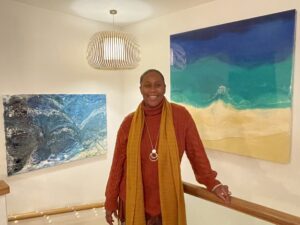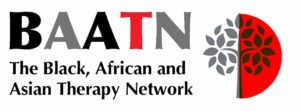
Author: Sarah Colbourne
A new client, a black woman in her 40s, was emotional at the end of our initial session. ‘It’s been so challenging to find a therapist, and one who is culturally sensitive,’ she said. ‘It feels like a load has been lifted off my shoulders.’ As I smiled at her, I didn’t tell her what I was thinking – that I never thought as a black, working-class woman diagnosed at age 49 with dyslexia, I would be working as a qualified counsellor in private practice at age 50.
When I was 20, I was sectioned for attempting to take my own life. Back then, if someone had told me I would graduate from a respected training centre with a diploma in counselling, be selected to be the student to speak at the graduation ceremony, and be accepted on a master’s course, I would not have believed them. Not me! I had wanted to be a counsellor all my adult life, since a wonderful counsellor saved my life by sitting with me in my pain and helping me talk through it. I will forever be grateful to that counsellor. But I believed I didn’t have the intelligence or abilities to train as a therapist – you had to be clever, right?
I didn’t have a good experience in school, and when I expressed my desire to be a PE or English teacher, a white male teacher responded with these words, which I internalised my whole life: ‘That’s not for people like you; stick to what you are good at – sports. Stay in your lane.’ This same teacher, for some reason, seemed to enjoy humiliating me in class when he would ask me to stand up and recite my timetables or read a passage from a book. Unbeknown to him or me, I was dyslexic. It would reduce me to tears, and when it caused me to wet myself in front of the whole class I stopped trying at school. My academic life was over at nine years old. I stayed in my lane.
That all changed on 14 June 2017, when I lost friends and my friends lost family members, in the Grenfell Tower fire. My community, friends, neighbours and my son, who lost a friend aged five at the time, were hurting. Friends who had lost their loved ones told me: ‘Time is precious and short; get the tools to help heal our community, Sarah.’ Those words catapulted me through the doors of The Minster Centre, to start my therapy training.
I recall my interview with a tutor. We had to write a 500-word bio, which at the time seemed like 5,000 words to someone like me who had never written an essay before. I thought another white man sat between me and my learning. Then he said, ‘Your bio was well written; you understood the brief, so many don’t.’ These words stayed with me throughout the training.
As a black, working-class woman in a white, middle-class profession, with undiagnosed dyslexia and no formal qualifications, I wrote my first essay in 2018. The experience of having to build my academic ladder, attempting to climb it to qualify, and battling my own internal demons around my dyslexia and not being good enough now informs my work with my clients. In the counselling room, it shines bright for me, allowing me to work more creatively in verbally expressing myself and interacting with clients by using art materials, music and play.
My approach is integrative and my interest is in working with somatic, body-based techniques within the basic framework of counselling. A sensorimotor approach can aid a client struggling with words to work through the body and senses and connect their feelings, thoughts and words. I use Rogers’ core conditions to create an intersubjective space for me and the client to enter into – a meeting of two people’s minds. My hope for the future is to specialise in working with more marginalised groups in society who may have not been exposed to therapy or believe it is not for them.
